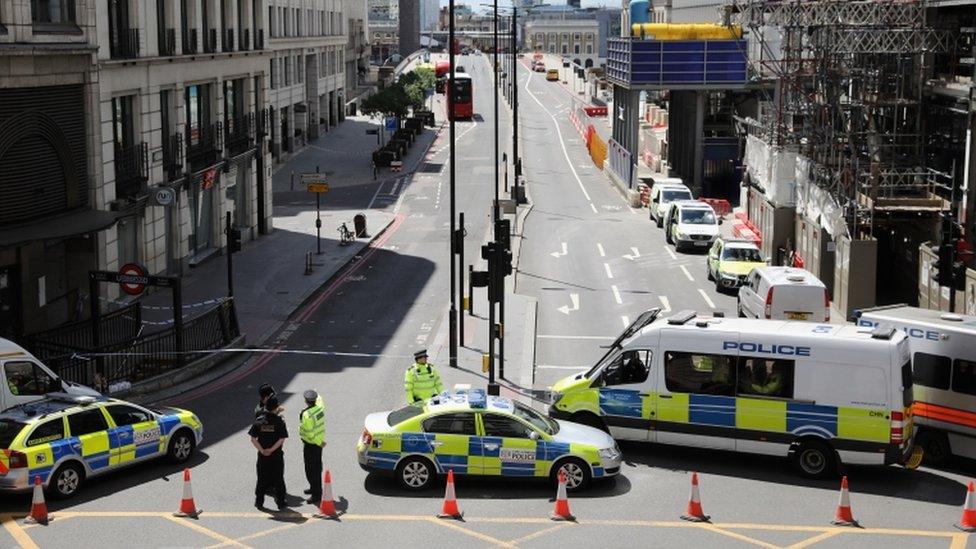Chesham climate activist referred to Prevent anti-terror scheme
- Published
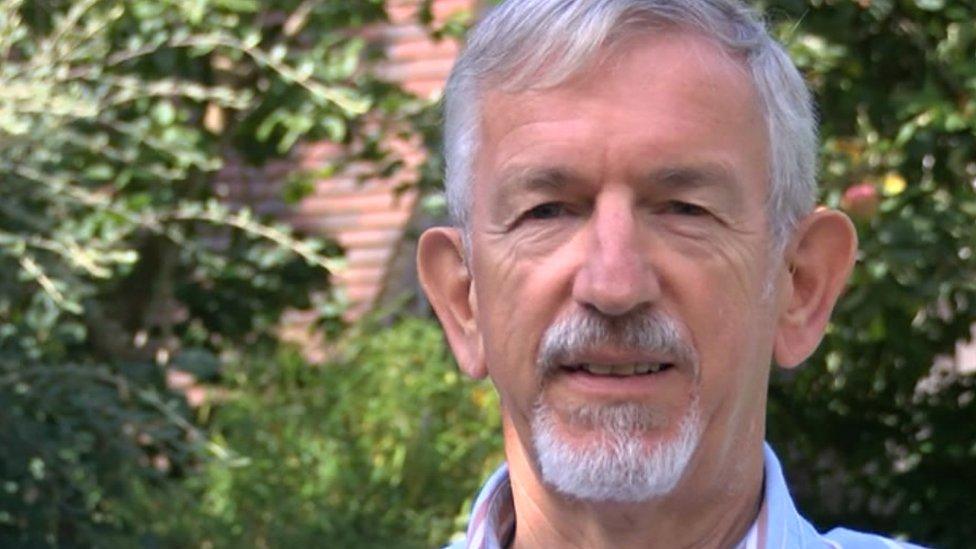
Lyn Jenkins told NHS staff he wanted to be arrested as part of Extinction Rebellion protests
A retired doctor said he was "disappointed" after the NHS referred him to a terrorism-prevention programme when he joined Extinction Rebellion.
Lyn Jenkins, 69, of Chesham in Buckinghamshire, sought help for claustrophobia in case he was arrested as part of climate change protests.
He was then referred by a therapist to the government's Prevent programme.
Oxford Health NHS Foundation Trust said it was obligated to "protect people who may be vulnerable to exploitation".
A government spokeswoman said: "Lawful non-violent protest does not meet the threshold for Prevent referrals."
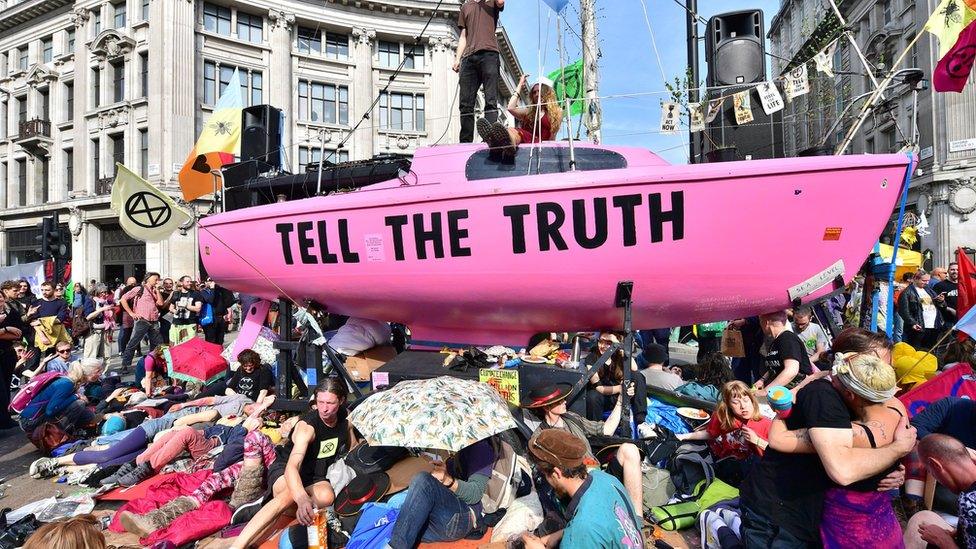
Extinction Rebellion has staged protests intended to cause "major disruption" across the UK
Mr Jenkins, who worked for the NHS for 40 years, said he joined Extinction Rebellion and decided "the only way to make an effective, systemic change" was to "get arrested".
As first reported by The Guardian, external, he visited a service run by Oxford Health NHS Foundation Trust and explained he wanted to get help for claustrophobia as he planned to be arrested as part of climate change protests.
He said he attended the service four times before receiving a phone call "out of the blue" from his therapist.
"She said she and her supervisor decided to refer me to Prevent," he said.
"I was really surprised. It just seemed ludicrous.
"I'd been trained in Prevent as a doctor and as far as I was concerned it was to deal with people who were being radicalised by terrorist groups."
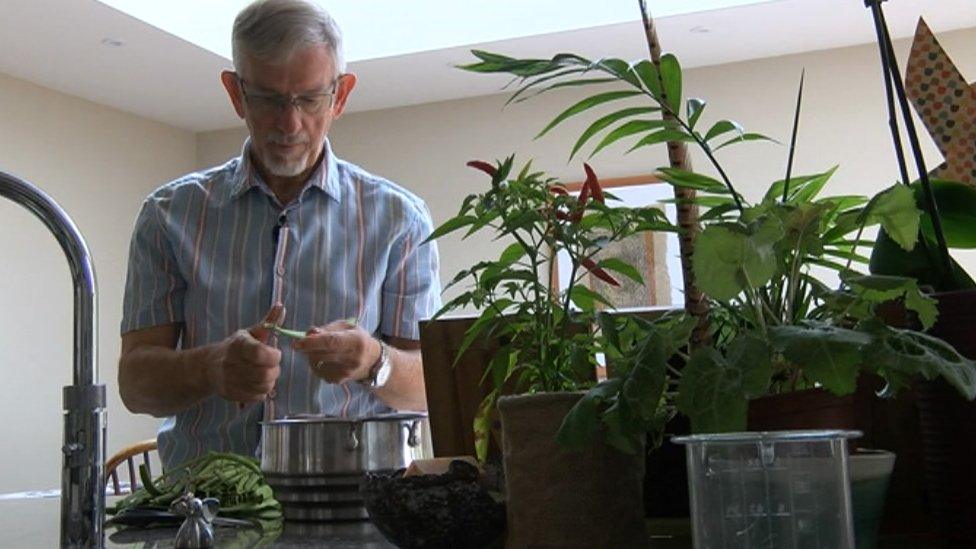
The retired doctor said he "couldn't believe" what had happened
Mr Jenkins said he was later told Prevent had refused his referral but his name would "permanently" be on a list of people who have been referred to the programme.
"I'm now on the list as a terrorist suspect and I don't know what Prevent will do with that information," he said.
"I'm disappointed with the NHS."
A spokeswoman for the NHS trust said: "There is a range of safeguarding matters on which we may seek advice.
"Prevent is part of the safeguarding programme, with a remit that extends beyond terrorist activity.
"If someone seeks treatment with us with the declared intention of enabling themselves to be arrested, that would prompt us to consider whether they were vulnerable or were being exploited by following the appropriate safeguarding process."
- Published1 September 2019

- Published14 April 2022
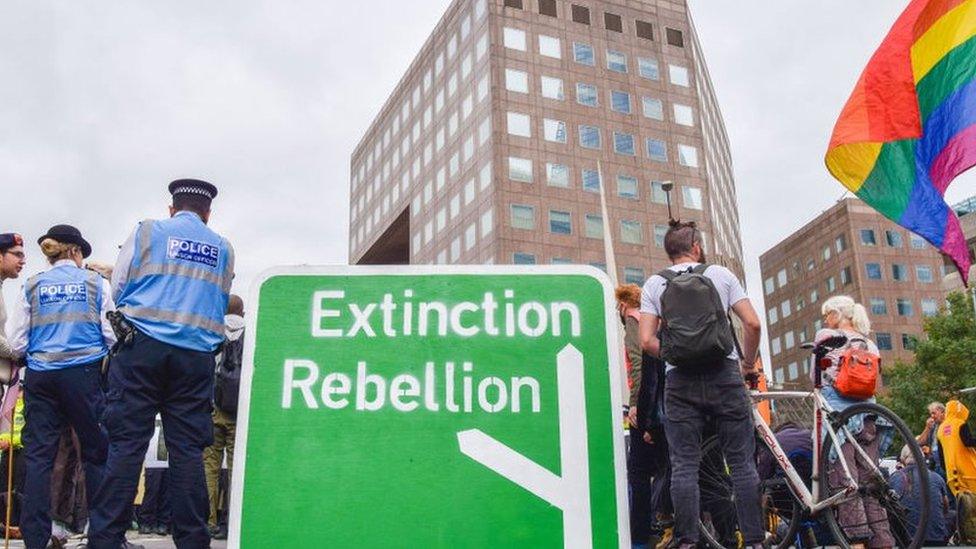
- Published4 June 2017
